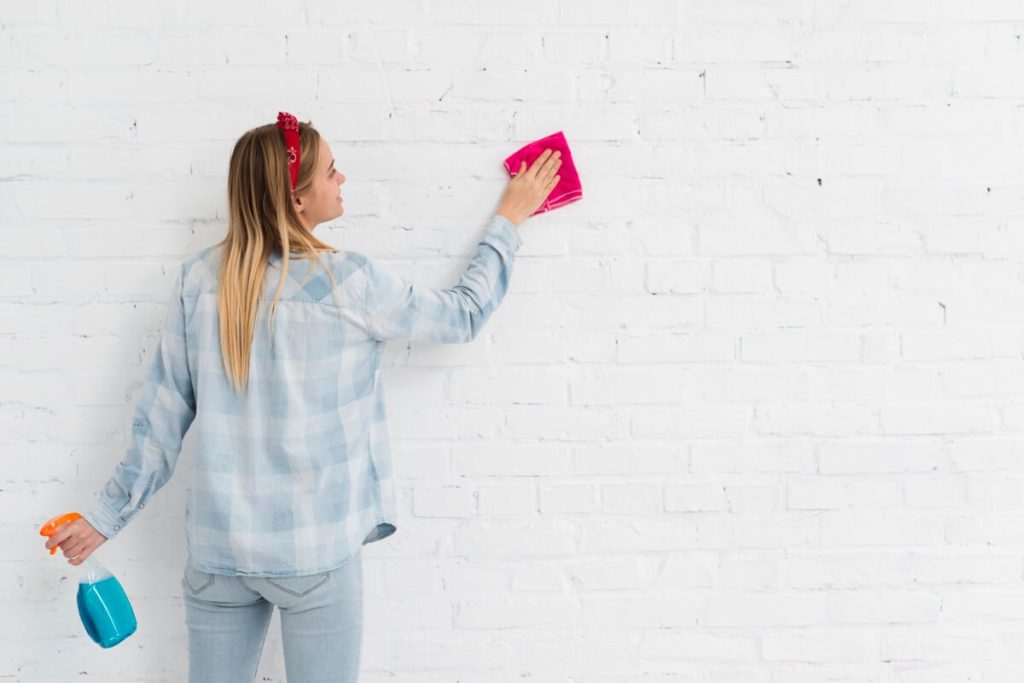Useful Tips for Cleaning Your Brick Walls

Brick walls are one of the most ubiquitous structures in landscaping, and they provide both practical and aesthetic benefits to any outdoor space or yard. Having a well-maintained brick wall can enhance the visual appeal of a landscape while helping to demarcate it and provide a clear delineation between different spaces within the landscape.
However, if not well-maintained, brick walls can easily become dirty with grime and mould accumulating on them, causing them to become eyesores in an otherwise gorgeous landscape. In this post, we take a look at some of the techniques and strategies that you can use to clean your brick walls so that they retain their charm and appeal in the long term.
Cleaning Brick Walls
To ensure that your brick walls retain their rustic appeal, it is crucial for you to clean them regularly. When cleaning your brick walls, avoid using any materials that are too abrasive, as these can damage the surface of the brick, potentially ruining its look. Instead, opt for gentler cleaning materials such as rags and brushes.
At the same time, avoid strong cleaning solutions or detergents that might potentially cause the bricks to become discoloured. If possible, try to spot-test your cleaning materials and solutions on a small, inconspicuous part of the brick wall first to ensure that the end result is something that you are happy with.
Power Washing Precautions
Once in a while, brick walls can also benefit from power washing to get rid of stubborn stains or dirt that might be lodged deep in the wall’s nooks and crevices. If you opt to do power washing on your brick wall, ensure that the pressure you use is suitable for your wall and does not end up damaging the mortar. If you’re not confident about power washing your own brick walls, it may also be a good idea to engage a professional to assist with this.
Removing Stains and Discolouration
If your brick wall has stains or discolouration that you are unable to remove using traditional washing methods or power washing, you may need to consider using specific stain-removal treatments. The treatments that you will require will vary depending on the type of stains that you face. For example, rust stains may require acid to remove them, whereas mould and mildew stains can typically be resolved with vinegar or a specialised cleaning solution.
Get Your Bricks from a Trusted Source
If your brick wall is too dirty to be cleaned or if cleaning is too troublesome or expensive, it may be time for a replacement. If you opt to replace your brick wall with a new one, it is crucial for you to get your bricks from a trusted source such as Fulton Brickyard so that you can be certain of their quality and lifespan.
Fulton Brickyard is the number one provider of bricks and paving materials in Melbourne. If you’re looking for high-quality, long-lasting bricks or paving supplies, contact us today to find out how we can help!
Image by Freepik
- Are Sandstone Paver Walkways Safe for Pets and Children?
- Artificial Turf vs Natural Grass: Which is Better for Your Yard?
- Can You Pressure Wash a Wooden Deck?
- The Benefits of Permeable Pavers in Stormwater Management
- The Importance of Proper Drainage Planning for Your Backyard or Garden
- Common Mistakes to Avoid When Cleaning Sandstone Pavers
- How to Repair Broken or Sunken Pavers
To learn more about the outstanding benefits of our expressive, evocative,
and natural granite pavers call us today on:
